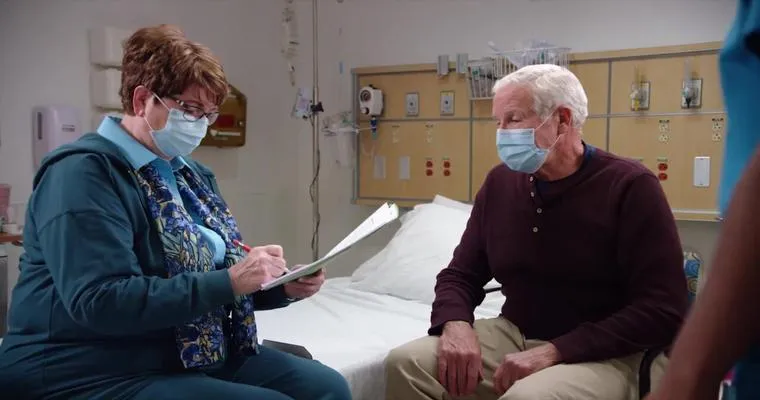When a loved one is transferred from the "emergency room (ER)" to "inpatient rehab", it can be a challenging time for both the patient and their family. Supporting your mother during this transition is crucial for her emotional and physical recovery. Here are some effective ways to provide support and ensure she feels cared for and reassured during this important phase.
First and foremost, it is essential to "communicate openly" with your mother about her feelings regarding the transfer. Many patients may feel anxious or scared about moving from the ER to rehab. Let her express her concerns, and listen attentively without judgment. Offering a safe space for her to share her thoughts can significantly alleviate her stress.
Another important aspect of being supportive is to "stay informed" about her condition and the rehab process. Ask the medical staff any questions you may have regarding her treatment plan, the goals of rehab, and what to expect during her stay. Knowing that you are knowledgeable about her care will not only help you provide better support but also reassure your mother that she is in good hands.
Additionally, consider helping your mother maintain a sense of normalcy. Bring familiar items from home, such as photographs, a favorite blanket, or her favorite book, to make her room feel more comfortable. These personal touches can help her feel more at ease in a new environment.
Visiting her regularly can also make a significant difference. Your presence can provide comfort and reduce feelings of isolation. However, make sure to check the facility's visitation policies and be mindful of her energy levels. Sometimes, a short visit can be more beneficial than a long one, especially if she is feeling fatigued.
Encouraging her to engage in her rehab activities is another way to show support. Offer to participate in her rehab sessions if possible, or simply motivate her to take part in the exercises and therapies provided by the staff. Your encouragement can boost her morale and reinforce her commitment to recovery.
Furthermore, advocating for her needs is crucial. If there are specific concerns or requests she has regarding her care, be her voice. Whether it’s about her diet, therapy preferences, or any discomfort she is experiencing, ensuring that her needs are addressed by the healthcare team can greatly enhance her experience in rehab.
Lastly, take care of yourself during this process. Supporting a loved one can be emotionally taxing, so it's essential to prioritize your well-being. Seek support from friends, family, or support groups to share your feelings and experiences.
In summary, being supportive to your mother as she transitions from the ER to an inpatient rehab involves open communication, staying informed, personalizing her space, regular visitation, encouraging participation in rehab, advocating for her needs, and taking care of your own emotional health. By following these steps, you can help create a positive environment that fosters her recovery and strengthens your bond during this challenging time.





